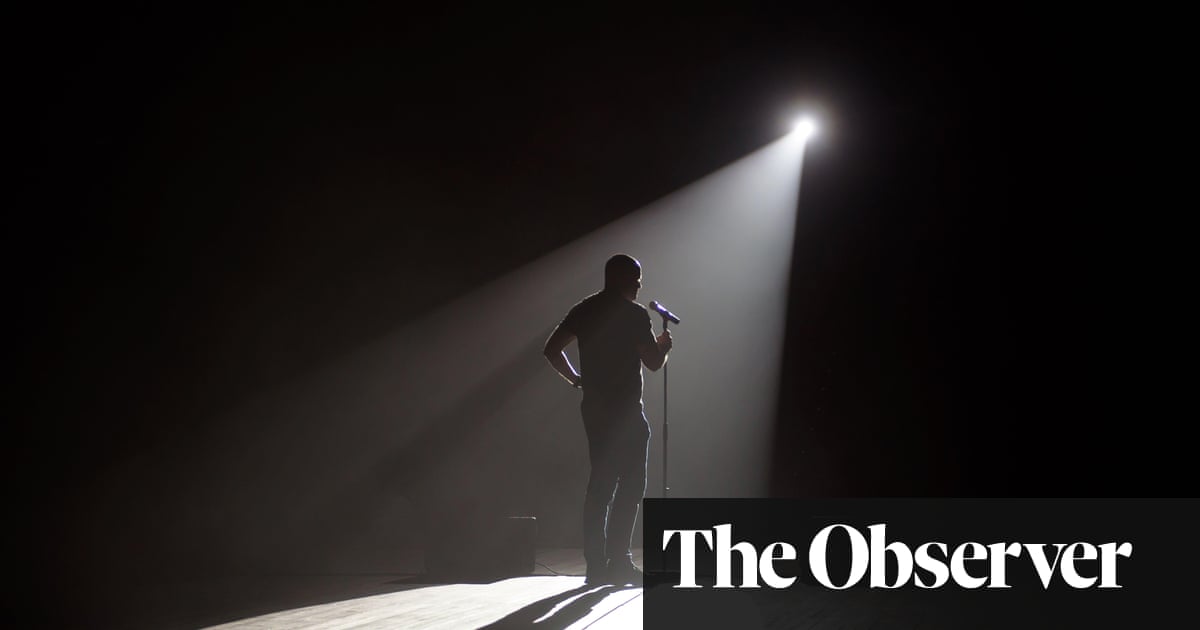Live comedy in UK has become serious business worth £1bn a year, study claims

The live comedy industry in the UK contributes more than £1bn to the economy every year, according to a study by Brunel University London.
In the first project of its kind, researchers calculated the industry’s annual value at £1bn, based on an estimated 3,000 workers in the sector, surveying more than 350 comedians, promoters, producers, venue managers and agents.
“Other sectors such as music and theatre have data in terms of their size, scale and contribution, but live comedy did not have the equivalent,” said Dr Sharon Lockyer, director of the university’s Centre for Comedy Studies Research (CCSR).
“Sometimes I think funny business isn’t considered business,” said Jessica Toomey, co-chair of industry body the Live Comedy Association (LCA), who runs Manchester’s Frog and Bucket comedy club and the Women in Comedy festival. “By measuring it, we can see it’s a credible industry that we should be proud of and we should protect. We want to get the same recognition and support as other arts do.”
The research, conducted by the CCSR, LCA and the British Comedy Guide, recorded where comedy workers live, how much money they make, and how long they’ve been in the industry, plus data on where shows are staged, and ticket prices and sales. It found that most standups (71%), now create comedy online to supplement their live work, while, true to stereotype, nearly half said they also have a podcast.
Many reported stagnating pay: 34% said pay had stayed the same in the past year, while 27% said comedy income had fallen. Toomey said: “Lots of people were talking about the stagnation of wages … if comedy is a £1bn-plus industry, where’s the trickle-down effect?”
Nearly a third of comedians said at least 90% of their income comes from comedy, while 26% said they make either no money or only up to 10% of their income from the industry. “It’s taking longer and longer to take the leap into comedy as full-time paid work,” said Toomey. “It also shows how many people are entering comedy.”
Lockyer added: “It tells us that it can still be a precarious profession for comedians. It’s still recovering from the impacts of the pandemic.”
The results also reveal a geographic divide, with 48% of comedians based in London and the south-east, but also a substantial scene in the north-west of England, where 16% of comedians are now based.
after newsletter promotion
The study found the average comedy ticket price is 23% cheaper than theatre, with nearly half of comedy tickets costing between £13 and £18, while The Stage UK ticketing survey 2023 showed the average cheapest ticket in regional theatres was £21.27. About 80% of promoters work on shows with audiences of fewer than 250 people, and 13% of those who book acts for comedy nights mainly work with new and emerging talent, compared with 16% focused on established performers.
The LCA intends to use the research to lobby the new government. Toomey highlighted that while the survey shows healthy audiences, with 45% of respondents regularly selling 71-90% of tickets, rising venue and other costs mean many comedians only receive a sliver of the takings. “One thing that would benefit the industry and help more money make its way to the actual comedians would be a VAT discount on tickets,” she said. “That would be instant financial relief that would help every single person.”
Related
Why investing in women is a vital next step for…
Get Nadine White's Race Report newsletter for a fresh perspective on the week's newsGet our free newsletter from The Independent's Race CorrespondentGet our fre
Business secretary signals major shift on electric car policy to…
In a determined effort to retain Nissan’s manufacturing presence in Britain, Business Secretary Jonathan Reynolds has vowed to implement “substantial c
Joint Statement: Business Secretary and Fujitsu Services Ltd
Business and Trade Secretary Jonathan Reynolds today (Friday 7 March) met chiefs for Fujitsu in Tokyo to begin talks over the cost of redress for victims of th
UK foreign secretary backs multilateral defence funding for Europe
UK foreign secretary David Lammy has said that a new multilateral fund will be needed to secure Europe’s defence as he confirmed that Britain is “open to”













